第71章 XXXIX(1)
So here is the world with us again, and our sentimental excursion is over. In the front of the Rufus Stone Hotel conceive a remarkable collection of wheeled instruments, watched over by Dangle and Phipps in grave and stately attitudes, and by the driver of a stylish dogcart from Ringwood. In the garden behind, in an attitude of nervous prostration, Mr. Hoopdriver was seated on a rustic seat. Through the open window of a private sitting-room came a murmur of voices, as of men and women in conference. Occasionally something that might have been a girlish sob.
"I fail to see what status Widgery has," says Dangle, "thrusting himself in there."
"He takes too much upon himself," said Phipps.
"I've been noticing little things, yesterday and to-day," said Dangle, and stopped.
"They went to the cathedral together in the afternoon."
"Financially it would be a good thing for her, of course," said Dangle, with a gloomy magnanimity.
He felt drawn to Phipps now by the common trouble, in spite of the man's chequered legs. "Financially it wouldn't be half bad."
"He's so dull and heavy," said Phipps.
Meanwhile, within, the clergyman had, by promptitude and dexterity, taken the chair and was opening the case against the unfortunate Jessie. I regret to have to say that my heroine had been appalled by the visible array of public opinion against her excursion, to the pitch of tears. She was sitting with flushed cheeks and swimming eyes at the end of the table opposite to the clergyman. She held her handkerchief crumpled up in her extended hand. Mrs. Milton sat as near to her as possible, and occasionally made little dabs with her hand at Jessie's hand, to indicate forgiveness. These advances were not reciprocated, which touched Widgery very much. The lady in green, Miss Mergle (B.
A.), sat on the opposite side near the clergyman. She was the strong-minded schoolmistress to whom Jessie had written, and who had immediately precipitated the pursuit upon her. She had picked up the clergyman in Ringwood, and had told him everything forthwith, having met him once at a British Association meeting.
He had immediately constituted himself administrator of the entire business. Widgery, having been foiled in an attempt to conduct the proceedings, stood with his legs wide apart in front of the fireplace ornament, and looked profound and sympathetic.
Jessie's account of her adventures was a chary one and given amidst frequent interruptions. She surprised herself by skilfully omitting any allusion to the Bechamel episode. She completely exonerated Hoopdriver from the charge of being more than an accessory to her escapade. But public feeling was heavy against Hoopdriver. Her narrative was inaccurate and sketchy, but happily the others were too anxious to pass opinions to pin her down to particulars. At last they had all the facts they would permit.
"My dear young lady," said the clergyman, "I can only ascribe this extravagant and regrettable expedition of yours to the wildest misconceptions of your place in the world and of your duties and responsibilities. Even now, it seems to me, your present emotion is due not so much to a real and sincere penitence for your disobedience and folly as to a positive annoyance at our most fortunate interference--"
"Not that," said Mrs. Milton, in a low tone. "Not that."
"But WHY did she go off like this?" said Widgery. "That's what _I_ want to know."
Jessie made an attempt to speak, but Mrs. Milton said "Hush!" and the ringing tenor of the clergyman rode triumphantly over the meeting. "I cannot understand this spirit of unrest that has seized upon the more intelligent portion of the feminine community. You had a pleasant home, a most refined and intelligent lady in the position of your mother, to cherish and protect you--"
"If I HAD a mother," gulped Jessie, succumbing to the obvious snare of self-pity, and sobbing.
"To cherish, protect, and advise you. And you must needs go out of it all alone into a strange world of unknown dangers-"
"I wanted to learn," said Jessie.
"You wanted to learn. May you never have anything to UNlearn."
"AH!" from Mrs. Milton, very sadly.
"It isn't fair for all of you to argue at me at once," submitted Jessie, irrelevantly.
"A world full of unknown dangers," resumed the clergyman. "Your proper place was surely the natural surroundings that are part of you. You have been unduly influenced, it is only too apparent, by a class of literature which, with all due respect to distinguished authoress that shall be nameless, I must call the New Woman Literature. In that deleterious ingredient of our book boxes--"
"I don't altogether agree with you there," said Miss Mergle, throwing her head back and regarding him firmly through her spectacles, and Mr. Widgery coughed.
"What HAS all this to do with me?" asked Jessie, availing herself of the interruption.
"The point is," said Mrs. Milton, on her defence, "that in my books--"
"All I want to do," said Jessie, "is to go about freely by myself. Girls do so in America. Why not here?"
"Social conditions are entirely different in America," said Miss Mergle. "Here we respect Class Distinctions."
"It's very unfortunate. What I want to know is, why I cannot go away for a holiday if I want to."
"With a strange young man, socially your inferior," said Widgery, and made her flush by his tone.
"Why not?" she said. "With anybody."
"They don't do that, even in America," said Miss Mergle.